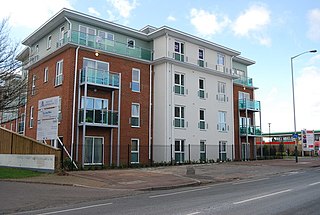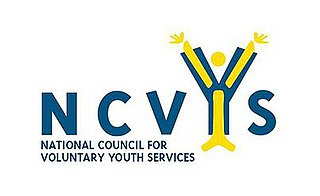| Tari mō te Rāngai ā-Hapori, ā-Tūao | |
| Agency overview | |
|---|---|
| Formed | 2003 |
| Jurisdiction | New Zealand |
| Minister responsible |
|
| Parent agency | Department of Internal Affairs |
| Website | http://www.ocvs.govt.nz |
The New Zealand Office for the Community and Voluntary Sector (OCVS) was established in 2003. It was administered by the Ministry of Social Development until February 2011, when it became part of the Department of Internal Affairs.
The Office for the Community and Voluntary Sector's vision is for a strong community-government relationship. In practice, this means providing an accessible central contact point for government agencies in their work with the community and voluntary sector, and promoting good practice models between government agencies and their community sector partners.
As well as providing advice to the Minister and Associate Minister for the Community and Voluntary Sector, the OCVS has five inter-related parts to its work programme:
The Office for the Community and Voluntary Sector operates two "toolkit sites" to assist New Zealand public servants in their work with community and voluntary sector organisations:
The OCVS also offers a number of publications of interest, which provide more detail on the community and voluntary sector in New Zealand:
The above publications can be viewed on the website or requested from the OCVS (e-mail: ocvs@dia.govt.nz).

A non-governmental organization (NGO) is an organization that generally is formed independent from government. They are typically nonprofit entities, and many of them are active in humanitarianism or the social sciences; they can also include clubs and associations that provide services to their members and others. NGOs can also be lobby groups for corporations, such as the World Economic Forum. NGOs are distinguished from international and intergovernmental organizations (IOs) in that the latter are more directly involved with sovereign states and their governments.

A nonprofit organization (NPO), also known as a nonbusiness entity or nonprofit institution, and often referred to simply as a nonprofit, is a legal entity organized and operated for a collective, public or social benefit, as opposed to an entity that operates as a business aiming to generate a profit for its owners. A nonprofit is subject to the non-distribution constraint: any revenues that exceed expenses must be committed to the organization's purpose, not taken by private parties. An array of organizations are nonprofit, including some political organizations, schools, business associations, churches, social clubs, and consumer cooperatives. Nonprofit entities may seek approval from governments to be tax-exempt, and some may also qualify to receive tax-deductible contributions, but an entity may incorporate as a nonprofit entity without having tax-exempt status.
Philanthropy is a form of altruism that consists of "private initiatives for the public good, focusing on quality of life". Philanthropy contrasts with business initiatives, which are private initiatives for private good, focusing on material gain; and with government endeavors that are public initiatives for public good, such as those that focus on the provision of public services. A person who practices philanthropy is a philanthropist.

In Ireland and the United Kingdom, housing associations are private, non-profit making organisations that provide low-cost "social housing" for people in need of a home. Any budget surplus is used to maintain existing housing and to help finance new homes and it cannot be used for personal benefit of directors or shareholders. Although independent, they are regulated by the state and commonly receive public funding. They are now the United Kingdom's major providers of new housing for rent, while many also run shared ownership schemes to help those who cannot afford to buy a home outright.

The Hellenic Statistical Authority, known by its acronym ELSTAT, is the national statistical service of Greece.
The voluntary sector, independent sector, or civic sector is the realm of social activity undertaken by organizations that are non-governmental nonprofit organizations. This sector is also called the third sector, community sector, and nonprofit sector, in contrast to the public sector and the private sector. Civic sector or social sector are other terms for the sector, emphasizing its relationship to civil society. Richard Cornuelle coined the term "independent sector" and was one of the first scholars to point out the vast impact and unique mechanisms of this sector. Given the diversity of organizations that comprise the sector, Peter Frumkin prefers "non-profit and voluntary sector".
A social enterprise is an organization that applies commercial strategies to maximize improvements in financial, social and environmental well-being. This may include maximizing social impact alongside profits for co-owners.
The social economy is formed by a rich diversity of enterprises and organisations, such as cooperatives, mutuals, associations, foundations, social enterprises and paritarian institutions, sharing common values and features:

The National Council for Voluntary Organisations (NCVO) is the umbrella body for the voluntary and community sector in England. It is a registered charity. NCVO works to support the voluntary and community sector and to create an environment in which an independent civil society can flourish. NCVO has a membership of more than 14,000 voluntary organisations. These range from large national bodies to community groups, volunteer centres, and development agencies working at a local level.
The Commonwealth Foundation (CF) is an intergovernmental organisation that was established by the Commonwealth Heads of Government in 1966, a year after its sister organisation, the Commonwealth Secretariat. The Foundation is located at Marlborough House in London, a former royal palace which was assigned for the use of these Commonwealth institutions by Her Majesty Queen Elizabeth II, the former Head of the Commonwealth. As the Commonwealth agency for civil society, the Foundation is funded by 49 member states to support participatory governance through its programmes. The Foundation provides resources, grants and access to platforms to encourage better engagement between civil society and institutions of governance. Membership of the Commonwealth Foundation is voluntary and is separate from membership of the Commonwealth of Nations.
Citizen Corps is a program under the Department of Homeland Security that provides training for the population of the United States to assist in the recovery after a disaster or terrorist attack. Each local Citizen Corps Council partners with organizations, volunteers and businesses to organize responders, volunteers and professional first responders for an efficient response so efforts are not wasted by being duplicated. By training in Incident Command, volunteers know whom to report to and how the incident is organized. This prevents sites from being inundated by untrained and unprepared personnel preventing operation. Citizen Corps also works in conjunction with the Corporation for National and Community Service in promoting national service opportunities for promoting homeland security needs.

The Institute of IT Professionals (IITP) is a non-profit incorporated society in New Zealand. As New Zealand's ICT professional body, the IITP exists to promote education and ensure a high level of professional practice amongst ICT professionals. Before July 2012, IITP was known as the New Zealand Computer Society Inc (NZCS).
In England, social care is defined as the provision of social work, personal care, protection or social support services to children or adults in need or at risk, or adults with needs arising from illness, disability, old age or poverty. The main legal definitions flow from the National Health Service and Community Care Act 1990, with other provisions covering disability and responsibilities to informal carers. That provision may have one or more of the following aims: to protect people who use care services from abuse or neglect, to prevent deterioration of or promote physical or mental health, to promote independence and social inclusion, to improve opportunities and life chances, to strengthen families and to protect human rights in relation to people's social needs.

The Muslim Charities Forum (MCF) is an umbrella organisation for UK based Muslim-led charities whose primary goal is to provide humanitarian aid and assistance to the poorest and most vulnerable people around the world. It is also an associate member of British Overseas NGOs for Development (Bond), the UK membership body for non-government organisations and a member of National Council for Voluntary Organisations (NCVO), an organisation with 11,000 members that champions the voluntary sector and volunteering.
UK Community Foundations (UKCF) is a registered charity that leads a movement of community foundations committed to positive social change in the UK through the development of “community philanthropy”. Community philanthropy involves people from all parts of a community working together locally to use the financial and other resources available to them to improve others’ lives.

Volunteering is a voluntary act of an individual or group freely giving time and labor, often for community service. Many volunteers are specifically trained in the areas they work, such as medicine, education, or emergency rescue. Others serve on an as-needed basis, such as in response to a natural disaster.

The National Council for Voluntary Youth Services (NCVYS) was a membership network of over 200 voluntary and community organisations, as well as local and regional networks, that work with and for young people across England. The organisation closed in 2016. For 80 years, NCVYS acted as an independent voice of the voluntary and community youth sector, working to inform and influence public policy, supporting members to improve the quality of their work, and also raising the profile of the voluntary and community sector's work with young people.

Gorta was one of Ireland's longest-running international development organisations. It was established in 1965, as 'Gorta: The Freedom from Hunger Council', in response to a call by the Food and Agriculture Organization’s (FAO) Freedom from Hunger Campaign (FFHC) for member countries to raise public awareness and financial support for long-term agricultural development. Following a merger with Self Help Africa in July 2014, the organisation operated in Ireland until May 2018 as Gorta-Self Help Africa. Thereafter the organisation has operated as Self Help Africa.
Artists Alliance is a defunct non-profit organisation that was based in Ponsonby in Auckland, New Zealand. Artists Alliance provided information, resources, career advice, networks, and advocacy for the visual artists of Aotearoa/New Zealand. Artists Alliance was also part of WeCreate and the Creative Coalition based in Auckland. Artists Alliance received funding from ASB Community Trust, Foundation North, Chartwell Trust, Patillo, Auckland Council, Creative New Zealand, and Pub Charity. They also received income from their members and other stakeholders.